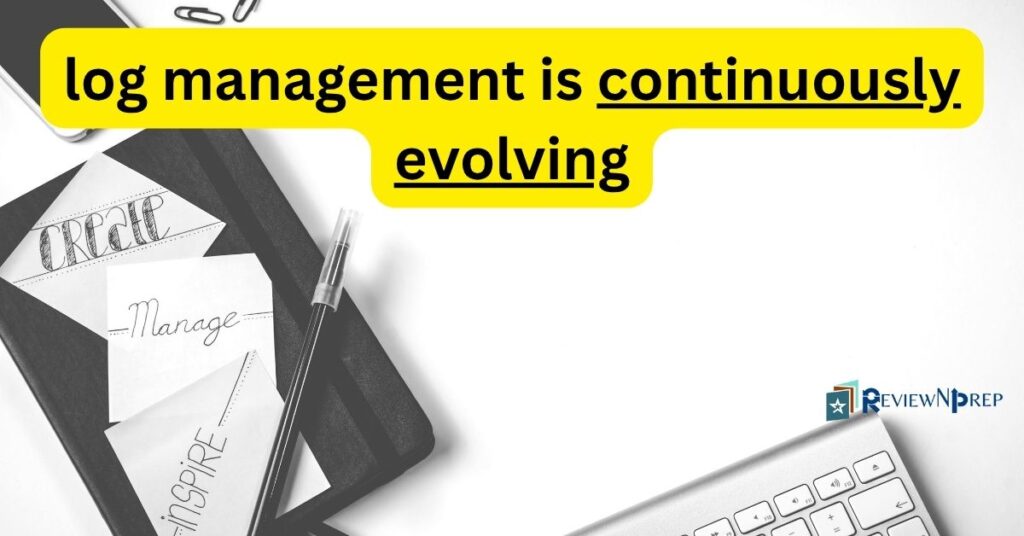The importance of managing this data effectively cannot be overstated. Complex systems generate myriad logs as they operate, often leading to an overwhelming amount of information that can become difficult to decipher. Organizations accumulate vast amounts of data across multiple platforms, servers, applications, and network devices, all contributing to a plethora of log files.
The challenge lies in collecting these logs and in analyzing and interpreting them meaningfully in order to enhance decision-making processes and operational efficiency.
The Significance of Log Management
Log management is a critical function for businesses aiming to make sense of vast quantities of operational data. Effective log management enables organizations to monitor system performance, troubleshoot problems, and maintain compliance with various regulations. Without proper management, logs can become chaotic, making it nearly impossible to gain insights or detect anomalies.
For many organizations, transitioning to sophisticated log management tools can greatly enhance their capabilities, providing a structured approach to handling log data safely and efficiently. The sheer volume and diversity of logs generated by various systems demand an intelligent approach. By utilizing log management solutions, companies can centralize log data from different sources, enabling a comprehensive view of system activity.
This process significantly reduces the time spent collecting and sorting through logs and allows IT teams to focus on analyzing and responding to issues promptly. It supports proactive monitoring, ensuring that potential system failures are identified before they escalate.
Understanding the Components of Log Management
The log management process is multidimensional, comprising several components that work in tandem to ensure data efficacy. The first key element is log collection, where various tools and frameworks gather logs from myriad sources. This collection must be streamlined to encompass different log formats and protocols to ensure nothing is overlooked.
Once collected, the next step is log analysis, where advanced techniques transform raw log data into actionable insights. This stage often employs machine learning and artificial intelligence, which have revolutionized how data can be analyzed for trends, errors, and security threats.
Another crucial aspect is log retention, which pertains to how long log data is stored. Retention policies often vary based on regulatory requirements, industry standards, or internal guidelines. Setting clear policies on log retention can help organizations manage their storage efficiently while ensuring compliance. Effective log retention strategies play a significant role in disaster recovery, enabling organizations to reconstruct events leading up to a system failure.
Implementing Best Practices for Log Management
Best practices in log management help organizations maximize the value derived from their data collection efforts. Foremost among these is ensuring that log data is collected and structured properly. This means defining standard formats and consistent fields across all logs collected to simplify analysis. Adopting a schema-based approach means that any user looking to analyze these logs can quickly decipher critical pieces of information, leading to faster troubleshooting and response times.
Organizations should ensure they set up alerts and notifications to keep critical staff informed about any unusual log activity. This proactive approach helps in early detection of potential issues and in mitigating risks in real-time.
Routine audits of log data ensure that logs are being effectively utilized and stored according to established protocols. Such audits can reveal gaps in the logging strategy, allowing organizations to make necessary adjustments and improvements.
Challenges in Log Management
Despite the advancements in log management technologies, several challenges persist. One of the main issues organizations face is log volume. Without adequate filtering and prioritization systems, it’s easy for critical logs to get lost in a sea of non-urgent data. This risk necessitates the implementation of advanced filtering algorithms that can prioritize what types of logs are important for analysis while archiving less critical information.
Log data can become sensitive due to regulatory compliance issues or company policy constraints. Organizations must navigate the complexities of data protection laws when managing logs, ensuring that sensitive information is either anonymized or properly secured. Failure to meet compliance can result in severe penalties and damage to an organization’s reputation.
The Future of Log Management

The landscape of log management is continuously evolving, particularly with the emergence of cloud computing and digital transformation initiatives. Many businesses are migrating to cloud-based systems that offer scalability and enhanced performance. These systems allow for real-time monitoring and analysis of logs, enabling organizations to respond swiftly to incidents and operational changes.
The adoption of AI and machine learning technologies is set to enhance the capabilities of tools for log management significantly. As algorithms become more sophisticated, they will facilitate advanced predictive analytics, allowing organizations to foresee issues before they materialize and optimize their system performance based on historical data trends.
The increasing complexity of technical systems necessitates a robust approach to log management. As organizations continue to face the challenge of analyzing vast amounts of data, effective log management becomes critically important for operational success.
By implementing best practices and adopting advanced tools for log management, organizations can transform their log data into actionable insights. These insights facilitate problem-solving and drive strategic decision-making, enabling organizations to stay ahead in a competitive environment.
Further Reading:
The Future of Remote Work: Strategies for Long-Term Career Success

